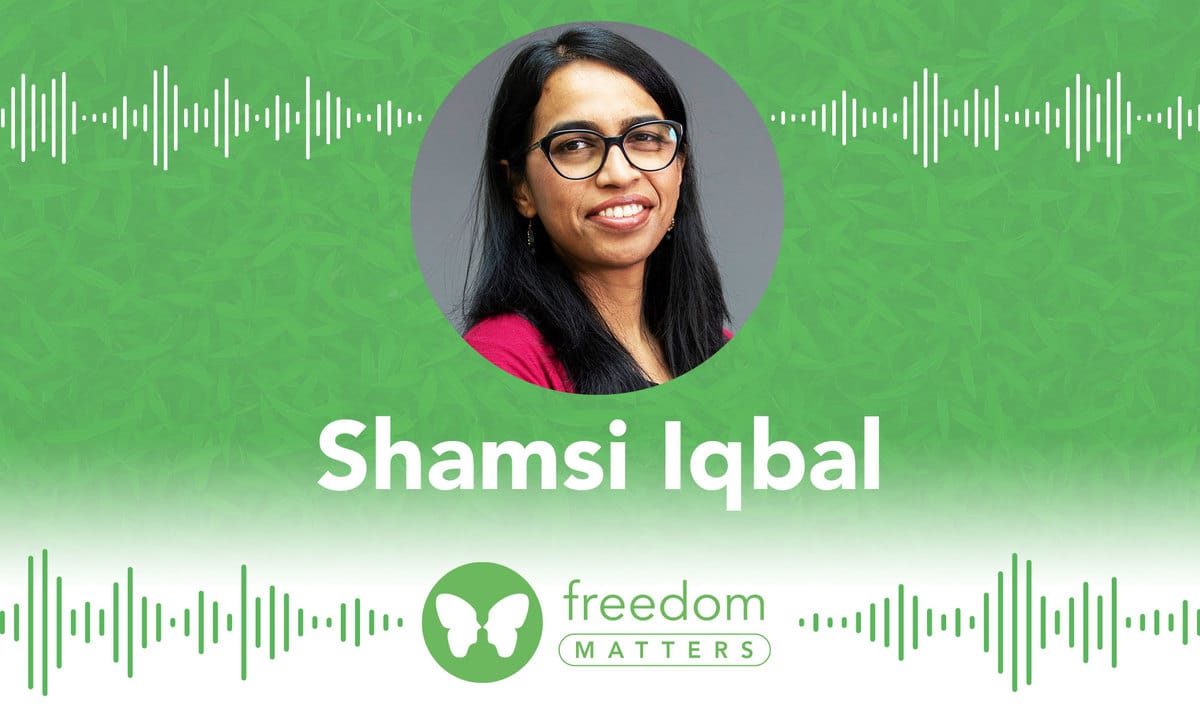Amber Jane Davis: How to Write a PhD Like a Pro

Amber Jane Davis: How to Write a PhD Like a Pro
In the world of academia, writing a PhD is one of the most notorious undertakings. It’s a daunting challenge that requires an immense amount of time, focus, and dedication. As a final test of your skills, the journey is often filled with obstacles, frustrations, and puzzles that can leave you pulling your hair out or throwing your hands up in despair – but it doesn’t always have to be that way.
Meet Amber Jane Davis.
Political scientist, PhD coach, and your ultimate guide to writing your best PhD without the unnecessary stress and struggle.
Learning from her own personal struggles of writing a PhD while recovering from Lyme disease, Davis was able to create the six-week HappyPhD Online Course, which coaches PhD students through all the typical pain points of writing a PhD. Her course focuses on creating sustainable working routines, improving focus, handling the emotional toll, and staying motivated.
We sat down with her this week to find out how you can write your best PhD while also maintaining your sanity.
What are some of the most common obstacles that prevent PhD students from achieving the results they want?
The most common obstacle is probably overwhelm. Writing a PhD is such a large project, and most everyone gets a bit lost at one point. What to do when you’re not sure what you’re doing? My advice would be to ‘keep it small’. To focus on the next step only, not on the project as a whole, until you find your footing again.
What is one thing PhD students can change about their work/home routine that will make a meaningful difference to their productivity/success?
Having a writing routine in place is a tremendous help. Make sure you do your research first, before you get to other tasks that are less intense. Also, work in intervals. Working in bursts will help your productivity more than anything. There will always be some time spent staring at the blank page, it’s part of the process, but there are ways to reduce the feeling that PhD days drag on with no end in sight, while you get little to nothing done.
How can PhD students retain their motivation throughout the year?
Intrinsic motivation is essential for PhD success. You need that drive, it is too large a project to complete on grit and discipline alone. If you find motivation waning, the best way to get out of the slump is to refind curiosity for your project. What are you trying to say? What does the project need next? It is also important to have some non-PhD activities scheduled, to not let the PhD take over your life.
What are some of the tools you can recommend for PhD students?
The tools I recommend include an app such as Freedom to switch off digital distractions. I recommend using a timer also, to time your intervals.
If you could offer your younger self some advice in regard to university, what would it be?
To go for it. To not doubt my capability.
Are there any common misconceptions about postgraduate studies and learning that you see among students?
It can all feel really intimidating when you start, and perhaps even for the entire length of the PhD. I know many people feel they don’t know ‘anything’ even on the day of their PhD defense! In a way you’re a beginner again, as academia is so highly specialized. Not worrying about that so much, but indeed seeing these years as an investment and a learning experience in which you are allowed to make mistakes, and try new things helps. In other words: adopting a ‘growth mindset’ instead of a fixed mindset.
What is one piece of advice you would give someone who is considering whether or not to write a PhD?
I’d ask the question: Why do you want to write a PhD? Intrinsic motivation is so important, as mentioned earlier. It will be near impossible without. Also: don’t go into debt to do so.
What are some methods or coping strategies that can ease some of the pain of writing a PhD?
Having a life outside of the PhD. It is essential! I am an advocate for self-care in academia also. Taking time to meditate or do yoga, and to exercise will help you be more grounded, and get less caught up in the more difficult aspects of writing a thesis.
Where are you currently based?
I’m currently based in Amsterdam, but I work with people worldwide, thanks to the Skype.

This week’s post was brought to you by Amber Jane Davis, political scientist, PhD coach, and hardcore academic. To learn more about Amber or the courses and training she offers, visit her website here.



